|
CoQ10 is an important essential enzyme in the body that participates in energy movement via the electron transport chain, partakes in production of building blocks for DNA, and also acts as an antioxidant in cellular membranes (Casagrande et al., 2018; Fischer et al., 2011; Medline Plus, 2017; Xie et al., 2022). For humans, CoQ10 is at its greatest concentration around age 20 when it starts to decline; this decline varies for each individual based upon a number of factors including but not limited to: metabolic syndrome, Alzheimer’s disease, vitamin A deficiency, medication usage, oxidative and physiological stress, and GI absorption issues (Casagrande et al., 2018). It is often prescribed to support cardiometabolic function. For intake, CoQ10 can be obtained from dietary sources, however very little (less than 10%) is actually absorbed from these sources and this absorption is influenced further by the underlying health of the individual, especially in regard to their digestive system (Casagrande et al., 2018; Xie et al., 2022). This warrants the need for supplementation in most cases but especially in those at greatest risk for accelerated decline (Casagrande et al., 2018; Xie et al., 2022). The most bioavailable CoQ10 supplement is the solubilized form of ubiquinol, those with greatest declines should consider this form over others (Casagrande et al. 2018).
In general, 22-400 mg/day of CoQ10 supplementation is considered safe, but even in clinical trials with high dosing, the adverse effects seen were not significant enough to stop usage, therefore 100 mg/day is definitely considered an acceptable dosage for adult patients (Casagrande et al., 2018; Xie et al., 2022). Conversely, for some individuals 100mg/day may not be enough due to genetic variations, challenges with absorption, certain disease states, age, medication usage, general health, inflammation levels, and stress load; even the mitochondrial size can influence needs (Casagrande et al., 2018; Fischer et al., 2011; MedlinePlus, 2017; Xie et al., 2022). Serum levels may be needed for individualized dosing, but due to the inevitable decline of this enzyme and the relative safety of supplementation, even without lab draws, it is appropriate to recommend all adults over age 20 take a supplement form of at least 100mg/day (Casagrande et al., 2018; Xie et al., 2022). It is important to note that extremely high doses may be recommended for individuals with genetic variants, but genetic testing should be done when at all possible to confirm this need (Xie et al., 2022). References Casagrande, D., Jordao, A. A., & Waib, P. H. (2018). Mechanisms of action and effects of the administration of Coenzyme Q10 on metabolic syndrome. Journal of Nutrition & Intermediary Metabolism, 13, 26–32. https://doi.org/10.1016/j.jnim.2018.08.002 Deichmann, R., Lavie, C., & Andrews, S. (2010). Coenzyme q10 and statin-induced mitochondrial dysfunction. The Ochsner journal, 10(1), 16–21. Fischer, A., Schmelzer, C., Rimbach, G., Niklowitz, P., Menke, T., & Döring, F. (2011). Association between genetic variants in the Coenzyme Q10 metabolism and Coenzyme Q10 status in humans. BMC Research Notes, 4(1), 1–7. https://doi.org/10.1186/1756-0500-4-245 MedlinePlus. (2017, April 1). COQ2 gene. MedlinePlus. https://medlineplus.gov/genetics/gene/coq2/ Xie, J., Jiang, J., & Guo, Q. (2022). Primary Coenzyme Q10 deficiency-7 and pathogenic COQ4 variants: Clinical presentation, biochemical analyses, and treatment. Frontiers in Genetics, 12(776807), 1–18. https://doi.org/10.3389/fgene.2021.776807
0 Comments
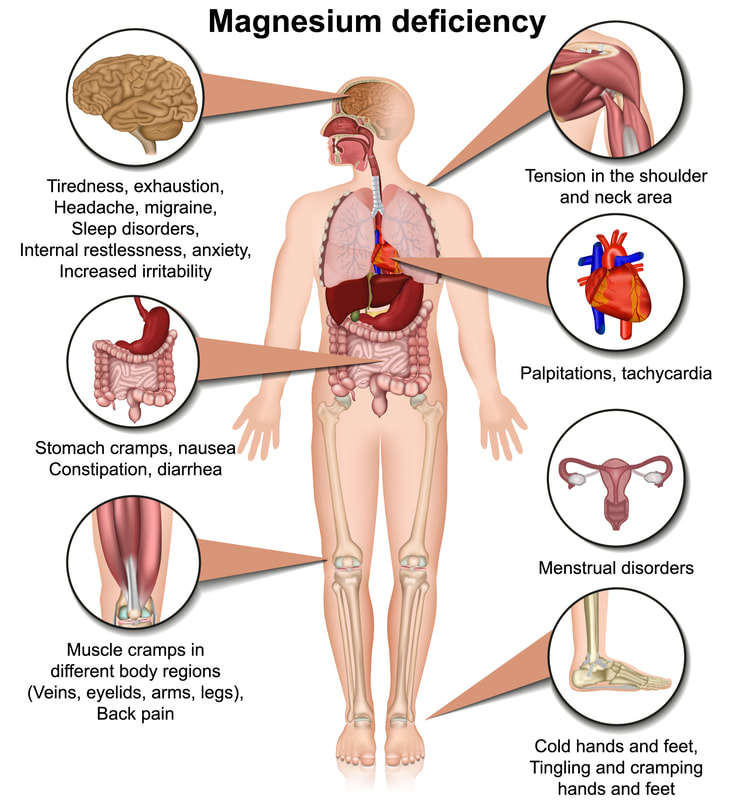 Magnesium is an important mineral that we get from the diet and is found in a diverse array of whole foods. It is a hot nutrient topic right now and for good reason. Although commonly seen in hospitalized patients, the general "healthy" population is now estimated to have a high level of deficiency that is going unchecked. This is concerning as magnesium supports many pathways and functions in the body including but not limited to: bone support, hormone functioning, blood clotting, and DNA replication (1). A deficiency could contribute to, or worsen, chronic conditions, as well as promote new health concerns. As health care practitioners it is difficult to bring awareness to this need as the symptoms of deficiency are vague: fatigue, lethargy and muscle weakness; and can easily be mistaken for other issues (1). There are also challenges in the serum reference ranges for testing and it is difficult to detect reductions of the magnesium in tissues, so baseline for supplementation can be challenging (1). The standard RDA (recommended dietary allowance) for adults is variable and depends on age and biological indicators. In general the recommendations are around 400 mg/ day which is the typical dose available in over the counter supplements (1). The good news is that magnesium is found in many foods and eating a whole foods based diet with a variety of items is a good way to meet your needs without the need for supplementation. It is important to note that food processing does diminish the magnesium content of many food items so choosing organic whole foods (if possible) is the best way to ensure you meet your needs. If you feel supplementation is still the best choice for you, talk to your provider to make sure there are no health reasons that you should not supplement. If you do choose to supplement be sure to purchase a quality product to ensure the best absorption, with nutrients and supplements quality really does make a difference. Magnesium Food List from the NIH Data Base
References
1. Gropper, S., & Smith, J. (2017). Advanced nutrition and human metabolism (7th ed.). Belmont, CA: Wadsworth Publishing/Cengage Learning. 2. National Institutes of Health Office of Dietary Supplements. Magnesium Fact Sheet for Health Professionals Accessed 05/06/2021. We all have a darkness inside us. A hidden part of ourselves that we hide from others. A side that we feel isn't how we want to be perceived or seen. I think of it as a monster living inside me. And mine is insatiable.... Have you ever found yourself creeping down the stairs late at night to grab a handful of chocolate chips because they are so small that they "don't count"? Or how about sneaking a couple of nuts from the cupboard as you shut the lights off in the kitchen for the evening. Or better yet, when the kids are in brushing their teeth you manage to sneak one of the chocolate bars you impulsively bought at the store last week. Do any of these things sound familiar? They do for me because these are all things I have recently done. Not things I have heard my clients say or things I have learned in theory. These are actual real life events that happen to me on a regular basis. I say they "happen" to me because honestly sometimes they feel a bit out of my control. I feel like there is some other part of me reaching for these foods even though i am adequately full. What sort of dark monster living inside me is able to hide for so much of the day but creep out and completely take over at night? And do my efforts to fight this monster actually work against me? Perhaps the approach I have tried and counseled on so many times is not the best way. Whenever I try to fight this monster I end up in a shame cycle that creates a negative environment in my mind and body. I create stress and this only increases cortisol levels, which raise my blood sugar levels. If I had just eaten the candy I would have raised my blood sugar as well. So if its going to raise no matter what why not just eat the candy?? Unfortunately its not quite as simple as this. The goal is to remove the need and desire to eat late at night and honestly it takes a lot more work than just reading one blog post, however this should get you started. 6 Tips to reduce Night Time Snacking
1. Eat a balanced dinner with adequate protein, a little fat and some complex carbs. This well rounded dinner will not only help keep you full but will also satisfy your various taste buds allowing you to feel more content in your meal 2. Clean the kitchen in the morning- YES I give you permission to leave your kitchen a mess- or at the very least pass this chore onto someone else in the household. The longer you hang out in the "food zone" of the house, the more likely you are to reach for a snack. 3. Make a cup of tea. Tea can be a great way to nourish your mind and body before bed. A sweeter herbal tea could help curb cravings for candy or treats. It will also help to keep your belly full to avoid any post dinner stomach growling. 4. Take magnesium. If you find yourself craving chocolate at night you might be low in magnesium. Talk to your doctor about whether adding in this supplement might be right for you. 5. Have a small treat right after dinner. Invest in high quality, bitter dark chocolate. Having a nibble of this right after a meal will help to satisfy that need for a dessert and the bitterness will quell the sugar cravings. 6. Go to bed early!! The longer you stay up and linger around the house the more opportunity for a snack. Go to bed after dinner and read, or just go to sleep early. A good nights rest allows us to wake up refreshed and the more refreshed and alert we are the better choices we make the next day! Anywhere you look online and any podcast series you listen to has suggestions for what foods are best for various ailments, health concerns, etc. This list is no different than any other you might find. I do not know all and have never claimed to. This list may be better than some and may be less inclusive than many. This list is a compilation of what I know from the education and and training I have undergone to receive my masters, it is also from the years of practice and anecdotal evidence I see day to day, and lastly but maybe most importantly-from the research and experts out there that I learn from on a daily basis. None of these statements are sited but all can easily be supported. My posts are largely opinion based with fact and data interwoven when needed. I feel the information I share should be treated no differently than how I would advise you to read anyone else's site. Comb through and apply what seems appropriate and what appeals to you. As always any suggestions and recommendations you wish to apply should always be discussed with a health care provider you know and trust, but more importantly, that knows your own personal health history. Alright, disclaimer done! On to the list. 1. Fatty Fish- The omega 3's found in fish like salmon, sardines, anchovies and other fish are important for brain health for a variety of reasons. These include their anti-inflammatory properties and their role in development and maintenance of brain cell membranes. The National Institute of Health shares that some research shows omega-3s to help reduce cognitive decline in diseases such as alzheimer's and dementia. The recommended intake for the average adult female is 1.1g. 2. Blueberries - These power house fruits are filled with fiber, antioxidants and are a great source of anthocyanin which is a flavonoid responsible for a variety of healthy outcomes. Enjoy a whole cup worth for only 12-15 grams of carb -even my keto friends can find some room for that many carbs. 3. Dark Leafy Greens- The nutrients in dark leafy greens are immense. Because of this they are the one food all diets agree on. In fact nearly everyone needs more of these each day. These include foods like spinach, kale, swiss chard, and dandelion greens. One component directly connected to brain health would be related to the high amount of vitamin E found in these foods. Vitamin E is a powerful antioxidant that can possibly provide some protection to the brain against cognitive decline. 4. Complex carbohydrates- This is an area of heavy debate and I definitely recognize the science that supports a keto diet for brain health, but that doesn't mean that I ignore the evidence that still links complex carbs to good health. We don't even have to dig into the research to see that. We can look at individuals across the world who live the longest and have the healthiest diets. Im talking about the Blue Zones. These scattered locations have very different diets, but one thing they share is that all the diets contain complex carbs of some sort. Complex carbohydrates include berries (like the blueberries mentioned above), sweet potatoes, whole grains, legumes, and many more. 5. Water- Dehydration is known to greatly impact cognitive function which makes hydration one of the number one ways to keep the brain sharp and focused. It does this in a number of ways including removing waste and aiding in the absorption of nutrients. In fact above every other suggestion water may be the most impactful and may have the most immediate effect on your cognition.
As a dietitian I often get asked "What do you eat?" My clients either think I am purchasing super expensive green powders and strange smoothie add-ins OR they think I secretly eat the foods I tell them to avoid yet somehow miraculously I don't suffer any adverse effects.
I love when they get to know me better and can understand that what I eat isn't complicated, its just simple, whole, real foods. I love it even more when these same clients start to understand that they too can eat in this simplified way and probably save a little money as well. A typical trip to the co-op or grocery store for me involves about 30 minutes in the produce aisle and about 5 minutes everywhere else. I shop by season and price as much as possible. I love Harmony in Bemidji because it tells you where the food is coming from. This is important for managing our carbon foot prints and its healthy and helpful to buy local. I buy as little as I can in packages and try my hardest to be creative in my meal options. Food waste is also always on my mind when I shop. Even if a giant bag of pears (one of my favs) is on sale, I won't buy it if there is the slightest chance that we may not have time to eat them all, use them in a soup, or if I won't have time to preserve the extra in some way. I try to only buy foods in bulk that last a long time and can be frozen, cooked down to soup or roasted if they start to lose their appeal. I try to cook with different foods as often as possible to help expand my families taste palate. But if Im short on time while shopping or the selections are slim I tend to shop the staple items and usually fall back on one of two of my staple meal creations. first choice is always veggie tacos, this is a family favorite and super fast. Basically any veggies are chopped and sautéed and then eaten in a wrap. In fact this is a great way to use up food scraps and reduce food waste. We even sometimes pull out random items from the fridge such as sun dried tomatoes, artichoke hearts and pickles to put on top. The next fall back meal is roasted roots and a mung beans or a meat if we are so inclined. Although this one is easy, the cook time is a bit longer. Same principle applies. Chop the food, throw it on a pan, roast it in the oven, cook the meat or beans however we want and dinner is served! The most important thing to remember in meal planning, shopping or cooking is veggies first! Now go out there and get cooking! And yes, that is a glass of wine in the image :) Ever feel like your stomach is trying to tell you something? Well, it probably is and its about time you start listening! Gut health contributes to an array of medical conditions from simple acne to complicated autoimmune disorders.
Some guts scream and others slowly whine. There is no rhyme or reason to how our gut health is damaged or repaired. But that doesn't mean there isn't hope. Working with a nutrition specialist is a great way to start moving towards a happier, healthier gut. Call or message me for a free consult. Lets get you started on the path to healing! Want more info? Check out this months InBemidjiMag for an article written by yours truly. I look forward to hearing from you! Do you ever feel confused with what to do with your health? Are you anxious to prevent disease but feel like there are too many ways to do it? Or are you just overwhelmed by the mile long row of vitamins that all look like they would work for you?
Every day that we open a magazine, sign onto the internet, or turn on a TV, we are bombarded with someone telling us how to be healthy. Maybe its a website banner for weight loss supplements, a full page print layout for the newest diet plan, an instagram post of a vegan sundae, or a medication commercial educating us on why we may need this newest drug and how much better our lives would be if we took it. Whatever the media may be, the message remains the same, "In order to be healthy and live a long life, you need to spend a lot of money and follow a complicated plan." I have news for you. It doesn't. Good health and long life are within your grasp and you don't need a second mortgage to afford it or a Phd to understand how to obtain it. All you need is a little common sense and an openness to step outside the box. Sometimes the simplest answer is the best answer and sometimes too much detail is actually too much detail. This couldn't be more true than with health and wellness. Getting back to the basics of what to eat is the true strait path to better health. This is as easy as it sounds. It means you are choosing real whole foods over fake heavily processed foods. It means you are choosing activity instead of sitting around. You are choosing to get to bed early rather than staying up late, and choosing more fruits and vegetables instead of trying to supplement with a powder. It also means you are choosing whole grains instead of cutting out whole food groups. In addition to eating simply its important to also cook simply. Instead of needing a complicated recipe that involves 20+ ingredients, you can steam some vegetables, drizzle some olive oil and top with herbs and spices. Or instead of dousing a loin of meat with BBQ you can simply roast it in the oven with nothing more than salt and pepper- actually taste the food for what it is rather than tasting the flavor of the marinade or your dipping sauce. So make your first step easy. No need to stress. Turn the TV off, deactivate the fitness app. Maybe your start is an hour earlier bedtime. Or perhaps you start by adding in an evening walk. Maybe you eat an apple, in fact maybe you eat an apple every day... Top 8 Nutrition Tips for 2018
1. Create balanced meals Make your plate colorful and bright. Choose lots of veggies, eat a moderate amount of protein, and eat less carbs, especially the refined variety. Try to have vegetables at each meal 2. Drink more water Choose clean water. If you need, it’s ok to add in some fruit or herbs to diffuse in the water to add some flavor to the food. 3. Eat whole real foods Choose less heavily processed foods. Reduce the chemicals in your food by avoiding convenience foods that are often loaded with preservatives. Choose foods that are in their whole-natural form. 4. Cut out sugary beverages This includes soda, juice, gourmet coffees, smoothies, etc. 5. Use fewer condiments Condiments often contain a lot of sugar and sodium. These foods are typically low in nutrition and are merely added calories. Try flavoring food with herbs and spices instead. For example instead of BBQ sauce on ribs, try adding a dry rub. 6. Eat more fiber Add in foods like seeds, whole grains, vegetables, and fruit. Some high fiber foods include broccoli, beans, pears, chia seeds, almonds, berries, brussel sprouts, oatmeal etc. 7. Eat locally when able Choosing local foods not only supports local farmers, but is also healthier. Winter is a bit tougher, but in the summer time you can easily access the farmers market and the co-op. Wintertime you have to plan ahead for during the summer and fall. Try canning or freezing some of your own produce or what you bought at the market. Otherwise try choosing foods that haven’t traveled quite so far to get to you. 8. Think about what your food is doing for you! Last but not least… before you take a bite or order that favorite dish, think about what the food is doing for you… Is it hurting your body? Is it helping your body? Is it bringing you joy to eat that food? Does eating the food make you feel guilt and regret? |
Details
Archives
June 2024
Categories |
|
Jessica Carter MS, RD, LD, CDE, RYT200 1900 Division ST W, Unit 4, Bemidji 218-556-9089 |
|
Copyright © Core Health & Nutrition, LLC.


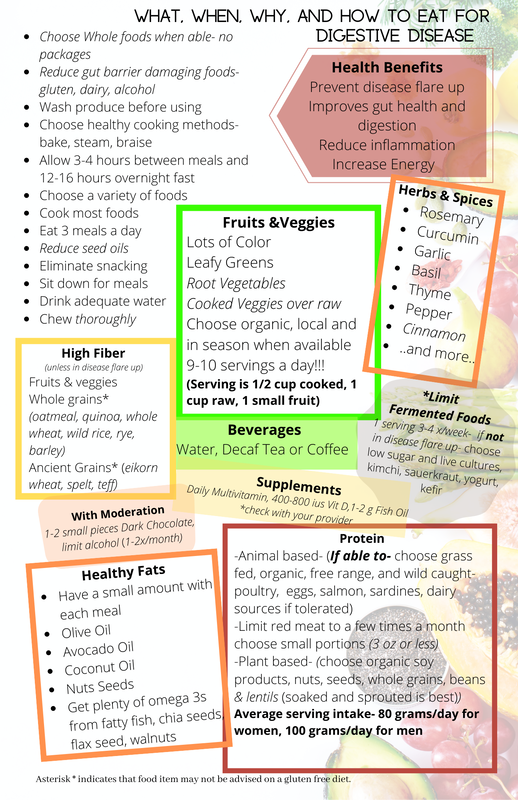
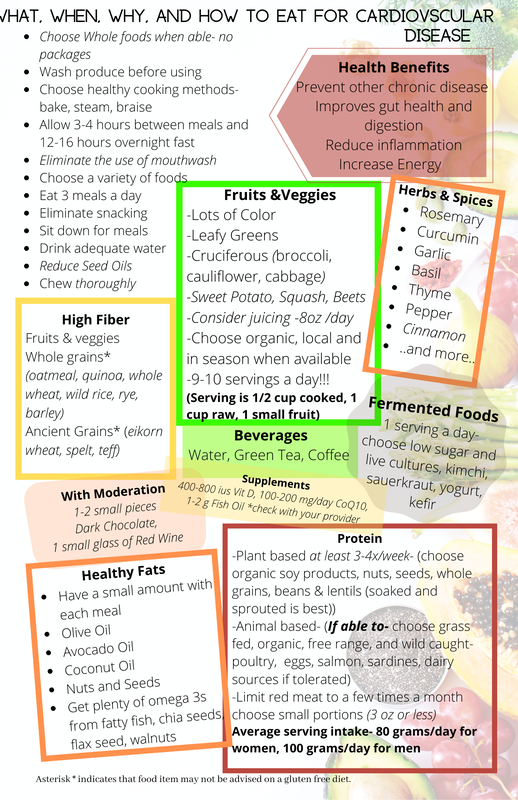
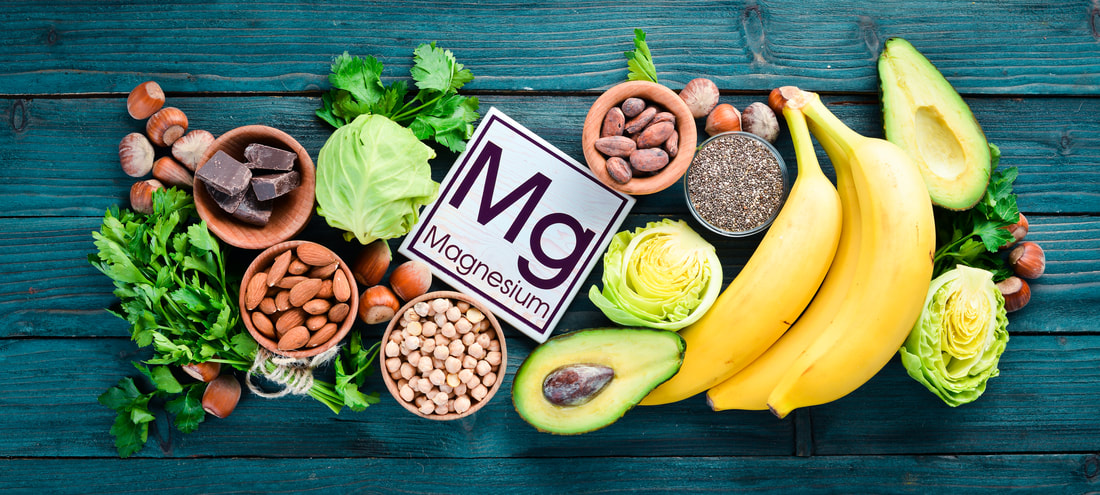


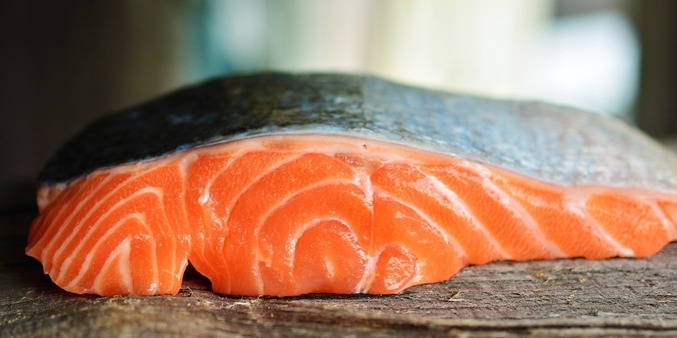
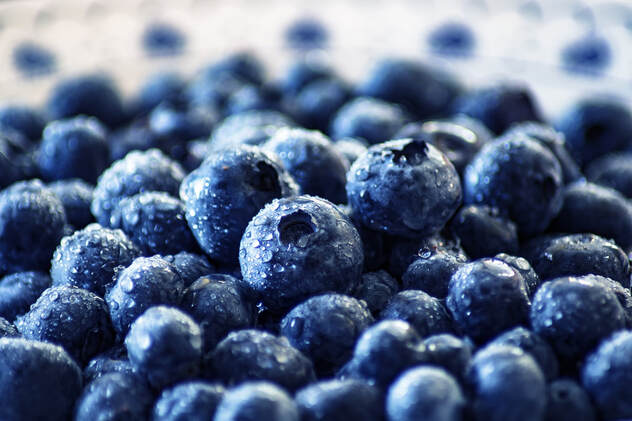
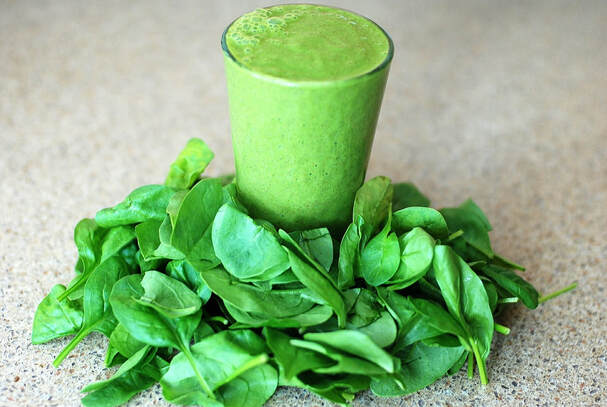
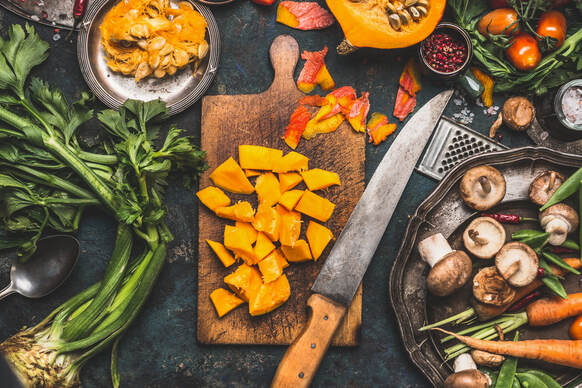

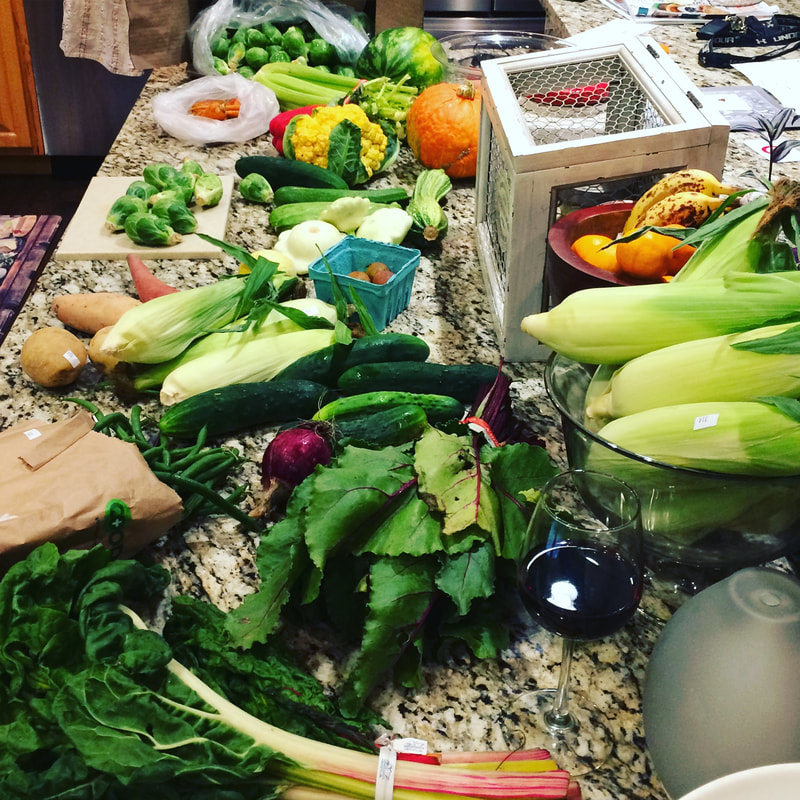

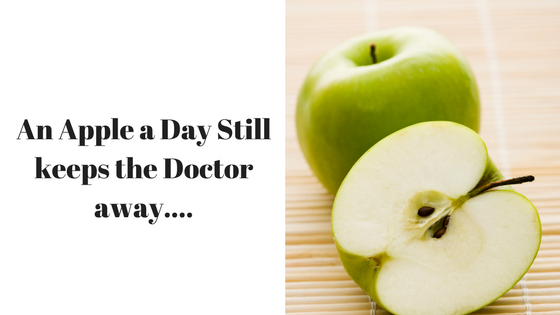
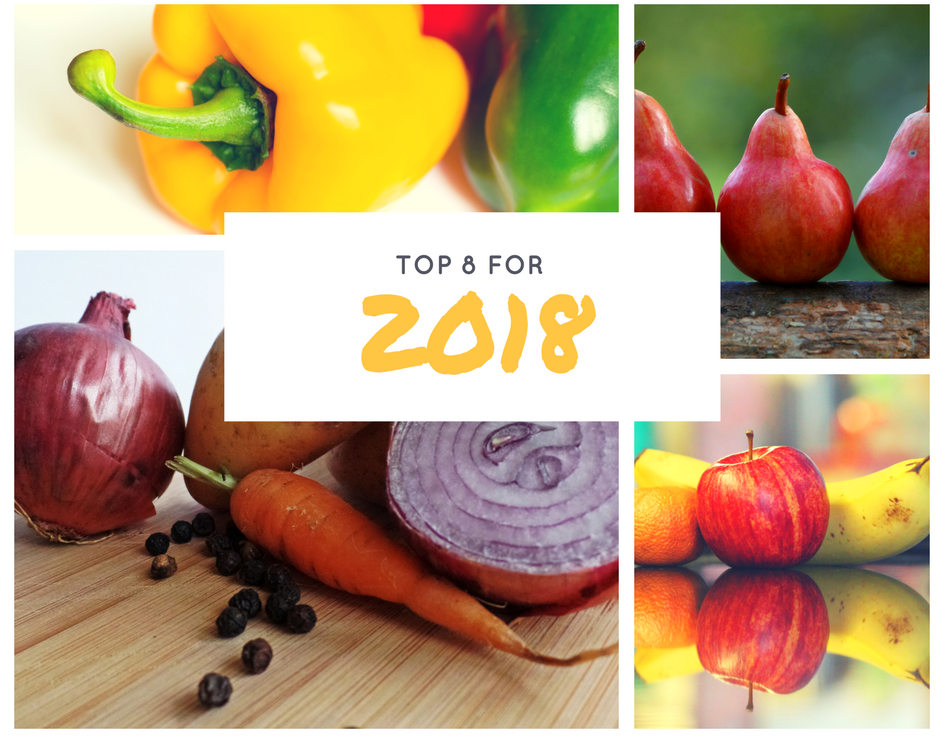
 RSS Feed
RSS Feed

